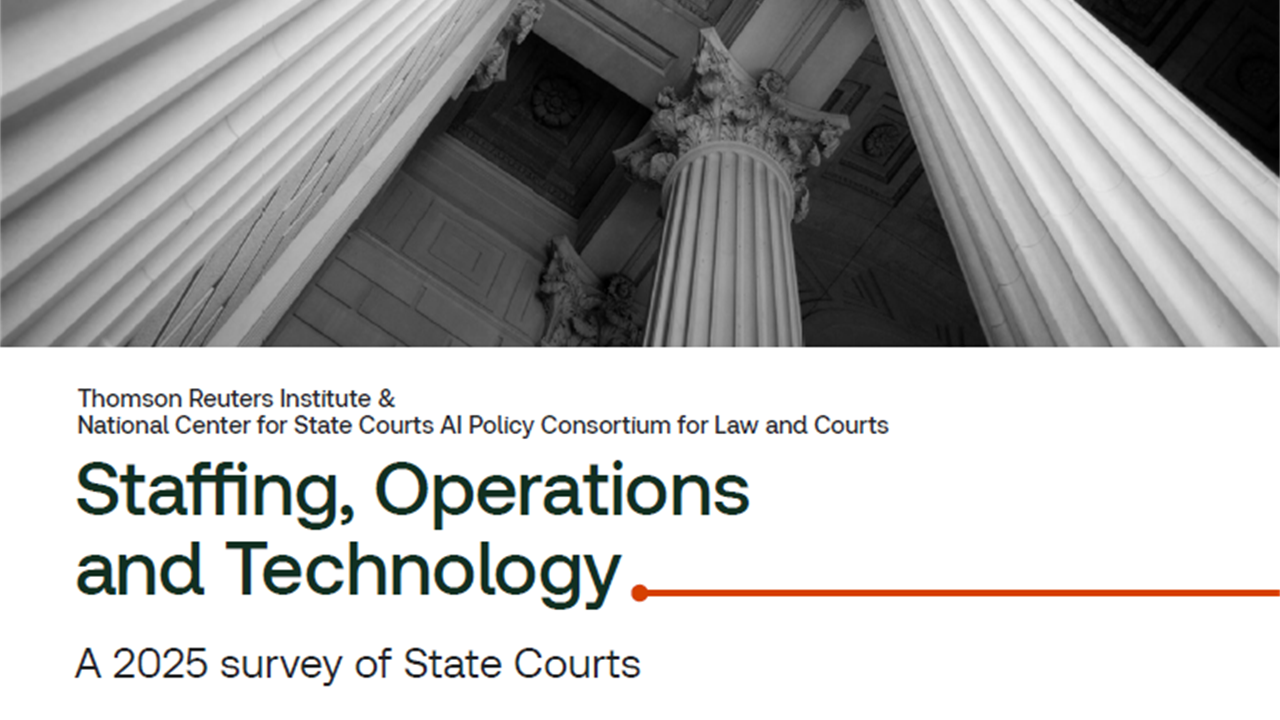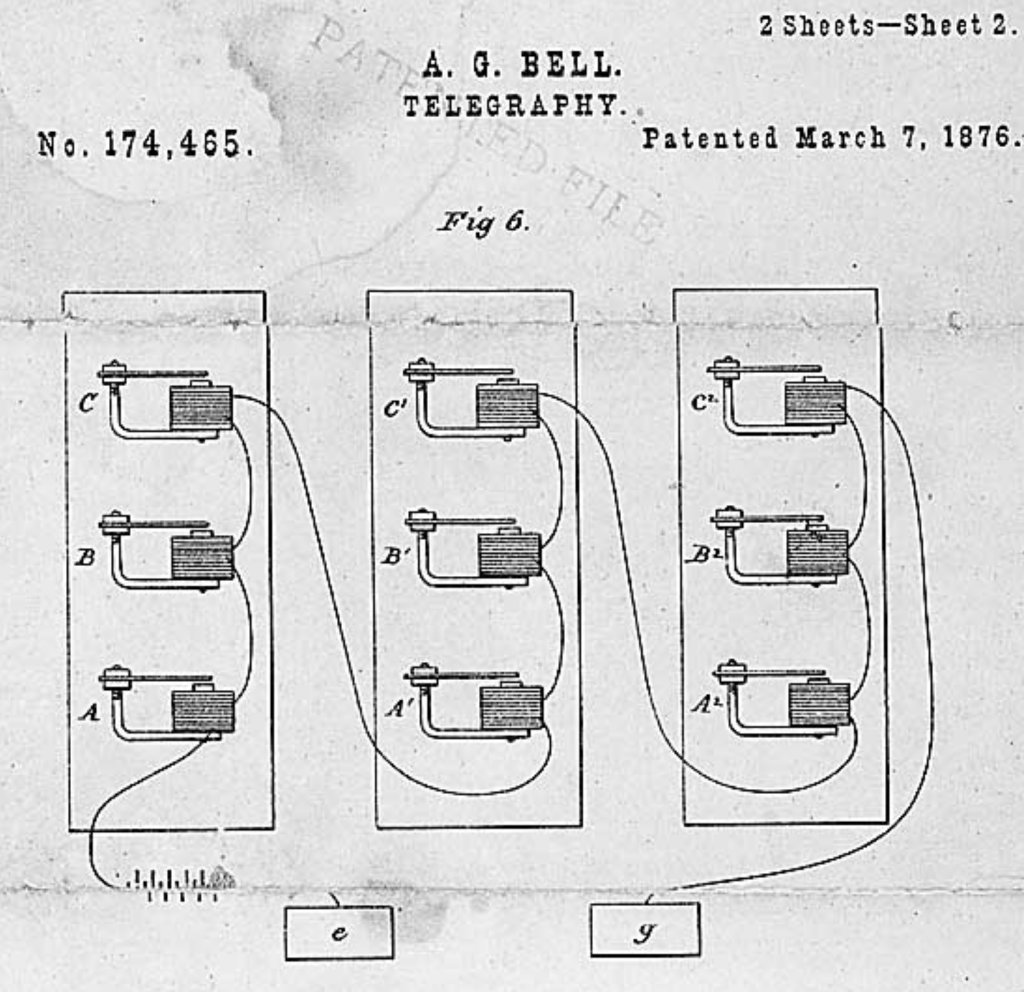A new survey of state courts reveals a striking paradox in the American judicial system: Even though courts face severe staffing shortages and operational strain, they remain reluctant to adopt generative artificial intelligence technologies that could provide significant relief.
The Thomson Reuters Institute’s third annual survey of state courts, conducted in partnership with the National Center for State Courts AI Policy Consortium, found that 68% of courts reported staff shortages and 48% of court professionals say they do not have enough time to get their work done.
Despite these pressures, however, just 17% say their court is using gen AI today.
Courts Under Strain
The survey, which gathered responses from 443 state, county, and municipal court judges and professionals between March and April 2025, paints a picture of courts under significant strain.
Seventy-one percent of state courts and 56% of county/municipal courts experienced staff shortages in the past year, with 61% anticipating continued shortages in the next 12 months.
This staffing crisis translates into demanding work schedules, with 53% of respondents saying they work between 40 and 45 hours a week on average, and an additional 38% working over 46 hours a week.
Perhaps most telling, only half of court professionals said they had enough time to get their work done.
These workload pressures are only getting worse. Nearly half of respondents (45%) reported an increase in their caseloads compared to last year and 39% said the issues they are dealing with have become more complex.
Meanwhile, 24% of respondents reported increases in court delays, compared to 18% who reported decreases.
AI Adoption Remains Limited
Against this backdrop of operational strain, the survey reveals a cautious approach to AI adoption that seems at odds with the technology’s potential benefits.
Currently, only 17% of respondents said their court was using gen AI, and an additional 17% said their court was planning to adopt gen AI technology over the next year.
This slow adoption occurs despite widespread recognition of AI’s transformative potential, with 55% of respondents rating AI and gen AI as having a transformational or high impact on courts over the next five years.
The survey found that AI and gen AI is the highest-ranking impactful trend, rated as transformational or high impact by 55% of respondents.
Court professionals clearly see the efficiency benefits AI could provide. Court professionals predict that in the next year, gen AI will help them save an average of nearly three hours a week, rising to nearly nine hours a week within five years.
The projected time savings could be substantial: Respondents estimate they will save an average of nearly three hours every week in the next year, growing to nearly six hours each week within three years and 8.8 hours each week within five years.
Barriers to AI Implementation
So what is keeping courts back? The survey identifies several factors contributing to courts’ cautious AI adoption.
Seventy percent of respondents said their courts are currently not allowing employees to use AI-based tools for court business, and 75% of respondents said their court has not yet provided any AI training.
There are also varied but significant concerns about AI implementation.
More than a third (35%) are worried that AI will lead to an overreliance on technology rather than skill, while a quarter have concerns about malicious use of AI, such as counterfeit orders and evidence. Interestingly, only 9% were worried about widespread job loss resulting from AI.
Budget constraints may also play a role in limiting technology adoption. The survey found that 22% say their budget for the next year increased, while 30% said budgets decreased, and 30% say budgets stayed the same.
Current Technology Landscape
While AI adoption lags, courts have made progress implementing other technologies. Most courts have adopted key technologies, including case management (86%), e-filing (85%), calendar management (83%), and document management (82%).
Video conferencing has reached near-universal adoption at 88%.
However, some technology gaps remain. Beyond gen AI, the most common technologies set to be adopted next are legal self-help portals, online dispute resolution and document automation.
Virtual Hearings Widely Adopted
The survey shows significant adoption of virtual hearings, with 80% of respondents saying their court conducts or participates in virtual hearings.
In more than 40% of all jurisdictions, virtual hearings are available for first/initial appearances, preliminary/status hearings and/or motion hearings.
Virtual hearings appear to improve court efficiency in some areas. 58% of respondents reported that virtual courts decrease failure to appear rates, and 84% reported that virtual courts increase access to justice.
However, the digital divide presents ongoing challenges. Nearly one in five respondents (19%) feel that the majority of litigants are experiencing decreased access to justice because they lack strong technology skills.
Court access for people with lower digital literacy and fewer technical support resources were ranked as the top challenges for litigants involved in virtual hearings.
Cybersecurity Concerns
As courts increasingly rely on technology, cybersecurity emerges as a critical concern. The survey reveals significant variation in confidence levels regarding IT security.
While 57% of respondents feel highly confident in their IT systems’ security, an alarming 22% of respondents say they are “not at all confident” in the security of their IT systems.
Generational Workforce Changes
The survey identifies generational workforce shifts as another major factor affecting courts. Baby Boomers and Gen Xers exiting the workplace, along with Gen Zers entering the workforce and Millennials moving into leadership positions, are trends frequently ranked as transformational or high impact.
These demographic changes have important implications for technology adoption. As the report notes, Gen Zers are digital natives who are very comfortable using technology and may find it easier to manage automated workflows, while they may be resistant to jobs and tasks that still rely heavily on manual tasks.
Reducing Operational Errors
The survey provides insights about task efficiency and error rates in court operations.
Entering and updating data in court management systems was rated as both the most error-prone task by a wide margin and also as the second-most inefficient task. This finding suggests that greater use of automation in CMS entry could yield major improvements in both efficiency and error rates.
The survey also found correlations between different operational challenges. Tasks that are more stressful are also correlated with causing inconvenience for court users, suggesting that addressing workflow inefficiencies could simultaneously improve both staff satisfaction and user experience.
A Critical Juncture for Courts
The survey suggests that courts face a strategic choice: embrace AI technologies that could significantly alleviate operational pressures, or risk falling further behind as staffing challenges intensify and workloads continue to grow.
“We’re facing challenges — staff don’t think they have enough time to meet their demands, and they’re working more hours to get the work done, and that’s leading to burnout,” said David Slayton, executive officer and clerk of court for the Superior Court of Los Angeles County.
“It’s incumbent on court leaders to really think about how technology can help us with this problem.”
Mike Abbott, head of Thomson Reuters Institute, underscored the urgency of the situation.
“Courts are facing an unprecedented convergence of change, driven by generative AI and generational shifts in their workforce, at the same time as they continue to deal with staff shortages, backlogs and delays,” Abbott said.
“AI literacy can empower the courts to understand both the risks and the opportunities associated with the technology, enabling them to identify the best use cases which help them focus on higher value work.”



























